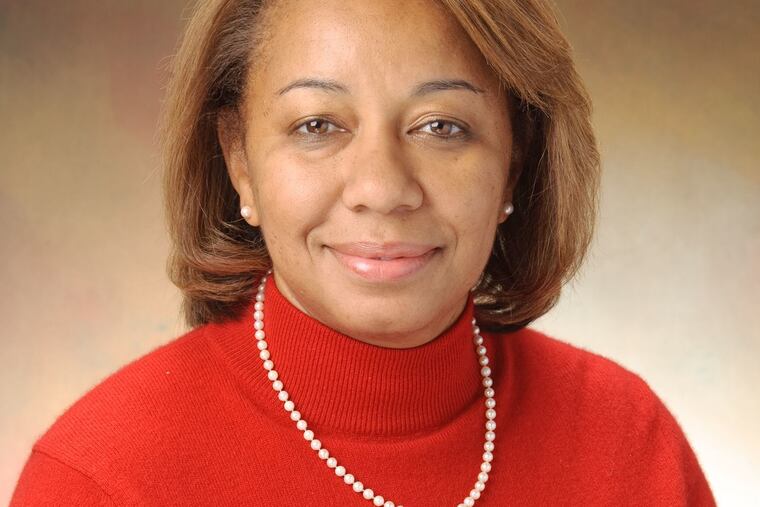Why CHOP’s chief psychiatrist is hopeful in the midst of a child and teen mental health crisis
"We all need to come together to support healthy emotional development," said Tami Benton, CHOP's psychiatrist-in-chief.

The kids are still not all right.
Three years after the U.S. surgeon general sounded alarms about a youth mental health crisis, many young people are still struggling. Roughly one in five teens is experiencing anxiety and depression. Suicide continues to be a leading cause of death for adolescents, and suicide rates continue to climb for Black youth.
Meanwhile, the Philadelphia area lacks sufficient psychiatrists specializing in child and adolescent mental health to help treat youth in crisis, according to the American Academy of Child and Adolescent Psychiatry, or AACAP.
But experts like Tami Benton are hopeful.
Benton is the psychiatrist-in-chief at Children’s Hospital of Philadelphia and the president of the AACAP. The Inquirer spoke to her about how the pandemic impacted the youth mental health crisis, and when families should seek out a psychiatrist among mental health providers. Responses were edited for clarity and length.
How did the pandemic impact child and teen mental health?
So you know the idea of closing schools? For the majority of kids, that’s where they were getting their mental health services. And for kids who were getting support through their primary care providers, that all went away for an extended period of time.
All of those things really contributed to what we saw as an overall worsening of mental health for young people and for their families.
Why haven’t we seen more improvement after schools, and other programs, reopened?
Going back to school addressed a lot of concerns. However, it also highlighted some newer concerns.
So for example, kids who made it just fine through the pandemic, maybe they were in sixth or seventh grade when the pandemic happened, when they came back to school, they were in high school. So all the developmental phases that kids normally would have gone through, they didn’t have those experiences.
Some kids just really lost a sense of belonging during that time period and are kind of struggling to get it back now.
Nowadays, I see a lot of kids who are worried about climate. They’re worried about the political environment. If you happen to be a young person who’s LGBTQIA, there’s a lot of pressure and negative things happening.
» READ MORE: CHOP’s only psychiatrist for infants is worried about the mental health of Philadelphia’s youngest
There are many types of mental health providers. When should a child see a psychiatrist?
We are physicians. So understanding and treating the biological basis of disease, in addition to the psychological basis of disease, is what child psychiatrists do.
For young people who are having more minor problems, or early problems with anxiety or depression, it makes more sense to see a therapist who can diagnose that condition and treat it.
But when a therapist or psychologist or counselor decides that, in fact, that intervention is not working, or if the child is experiencing moderate to severe symptoms, they are much more likely to connect with a psychiatrist. Psychotherapy, by itself, isn’t going to be the only treatment.
We actually don’t typically recommend that you just start people on medications without any other behavioral or psychological interventions.
Not every kid will need to see a child psychiatrist or have to be treated for a severe mental health disorder, but for moderate to severe mental health conditions, it is always prudent to see a psychiatrist.
Are you optimistic or pessimistic that we can claw out of this crisis?
I actually think we’re heading in the right direction.
I‘ve never felt as hopeful and optimistic about the chance to support the development of a healthy generation of young people who can reach their potential. I think we’re at a place where we can accomplish that, but we have to do it together.
We all need to come together to support healthy emotional development. I see that happening nationally a lot, if we look at our Congressional hearings, look at the Surgeon General’s reports. I just think we have to keep pushing in the right direction.